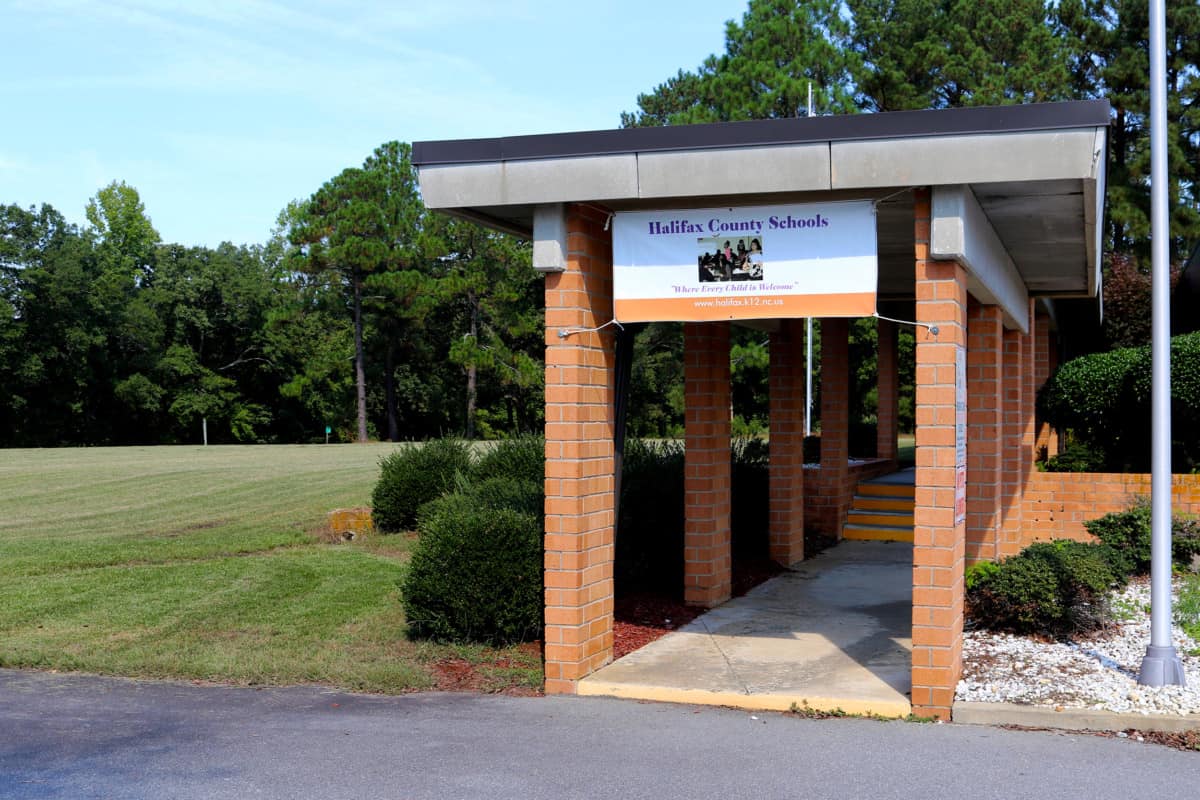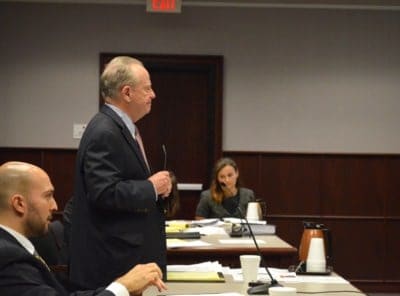The North Carolina Court of Appeals handed down opinions yesterday in two education lawsuits— one involving the State Board of Education and the North Carolina Rules Review Commission, and another in a case involving some Halifax families and the Halifax Board of County Commissioners.
In the first case, with a 2-1 decision, Chief Judge Linda McGee and Judge Lucy Inman ruled in favor of the defendants — the state and the rules review commission — and against the State Board of Education. Judge John Tyson dissented.
The rules review commission has the responsibility of “reviewing and approving rules adopted by state agencies.”
The case dates back to 2014 when the State Board sued the state and the rules review commission, arguing the board was not constitutionally required to submit policies for commission approval. The board and many other state agencies have been required to submit policies to the commission since the 1980s.
In July 2015, a lower court found in favor of the State Board. That ruling released the State Board from the requirement of putting its policies in front of the rules review commission, but this week’s appellate ruling means the State Board will again be subject to the group’s oversight.
In its opinion, the appeals court found the policy approval power of the commission is not out of bounds.
“We hold that the review and approval authority delegated to the Commission is an appropriate delegable power and that the General Assembly has adequately directed the Commission’s review of the Board’s proposed rules and limited the role of the Commission to evaluating those proposed rules to ensure compliance with the APA.”
Judge Tyson, in his dissent, said forcing the State Board to submit policies to the rules review commission hampered its ability to do its job.
“By establishing a Board of Education with the specific constitutional authority to promulgate its own rules and regulations, the framers of Article IX and the People, upon ratifying the Constitution, vested the authority to administer and supervise public education to the State Board, not the RRC. This intention is clearly set forth in the plain language of the Constitution in Article IX. The RRC review process has delayed and frustrated the State Board in accomplishing its constitutionally mandated mission.”
State Board Chair Bill Cobey said the State Board and its attorneys are studying the decision to decide the best course of action.
“As a result of Judge John Tyson’s dissenting opinion in the Board’s favor, there is an automatic right of appeal to the N.C. Supreme Court. That development is positive, because this case is critically important to whether the Board can fulfill its 150-year-old duty to supervise, administer, and make rules for the benefit of our public schools. As both the dissenting opinion and the trial court concluded, this is what the plain language of the North Carolina Constitution requires,” he said in an e-mailed statement.
The Court of Appeals also ruled this week on a lawsuit brought by some Halifax County families against the Halifax Board of County Commissioners. The 2-1 decision found the responsibility to provide a sound basic education to North Carolina students rests with the state, not individual counties.
The suit was brought by the Coalition for Education and Economic Security (CEES), the Halifax County branch of the NAACP, and three parents and guardians of children in Halifax County public schools. They alleged that the Board of Commissioners maintained “an inefficient three-district system that is a relic of the Jim Crow era, divides the children of Halifax County into the ‘good’ district and the ‘bad’ districts along racial lines, and fails to meet the fundamental educational mandates recognized by the North Carolina Supreme Court and established by the North Carolina Constitution,” according to a fact sheet handed out by the groups when the lawsuit was originally announced.
The plaintiffs asserted that three Halifax school districts were inequitably funded by the commissioners and that Halifax County Schools suffered as a result. The suit noted subpart facilities in Halifax and Weldon, and the inability to attract high-quality teachers, as well as disparities between the materials, curricular offerings, and access to extracurricular activities in the three districts. The complaint alleged the commissioners were responsible for the inequities.
The commissioners, however, denied responsibility for the inequities, saying instead that it exists because residents of Weldon City Schools and Roanoke Rapids Graded School District chose to impose a supplemental school tax and Halifax County schools did not.
In November 2016, voters in the district passed a measure that gave Halifax County Public Schools a supplemental schools tax as well.
Another argument in the suit was that merger of the three school districts would result in more equitable funding. While the ruling agreed that may be the case, it said the county commissioners do not have the authority to merge the districts.
Chief Judge McGee, Judge Inman, and Judge Donna Stroud ruled on the appeal. McGee dissented.
A landmark case, Leandro v. State, initially established the constitutional right of all North Carolina children to have the “opportunity to receive a sound basic education” This week, the majority held that under Leandro, the responsibility for providing a sound basic education does not extend to county commissioners.
“On plaintiffs’ argument that this defendant — a county board of commissioners — has the constitutional obligation to provide a sound basic education, we cannot lose sight of the fact that the Leandro cases began as a declaratory judgment action with the express purpose of determining the extent of the state constitutional right to a sound basic education and the entities responsible for providing that education. Leandro II, 358 N.C. at 611, 599 S.E.2d at 374. Leandro I and Leandro II determined the correct parties and the entities legally responsible for providing a sound basic education under the North Carolina Constitution; county commissioners were not included as parties in either case.”
The ruling says that to the extent local funding provided by the county commissioners is not adequate, individuals must use a specific process of meditation and litigation between the local board of education and the commissioners.
Furthermore, the ruling states that the “correct avenue” for the plaintiffs to seek a resolution to their issues would be through the ongoing Leandro legislation.
In February 2016, a lower-court judge dismissed the lawsuit, meaning the Board of Commissioners does not have to take any steps to address the plaintiff’s allegations. In her dissent issued yesterday, Chief Judge McGee said that she would have reversed the lower court’s dismissal.
“I respectfully dissent from the majority opinion’s conclusion that the Board is not constitutionally responsible for public education, not even for those aspects of public education the General Assembly has seen fit to statutorily assign financial responsibility for, consistent with Article IX, Section 2(2) of the North Carolina Constitution. I would hold that plaintiffs have stated a claim upon which relief may be granted, to the extent that their complaint alleges that the schoolchildren are unable to receive a sound basic public education, and that inability is a result of the Board’s inadequate funding of buildings, supplies, and other resources, responsibility for which was assigned to the Board by the General Assembly consistent with Article IX, Section 2(2) of the North Carolina Constitution. I would therefore reverse the trial court’s order granting defendant’s motion to dismiss pursuant to N.C.G.S. § 1A- 1, Rule 12(b)(6), and remand for further proceedings.”



